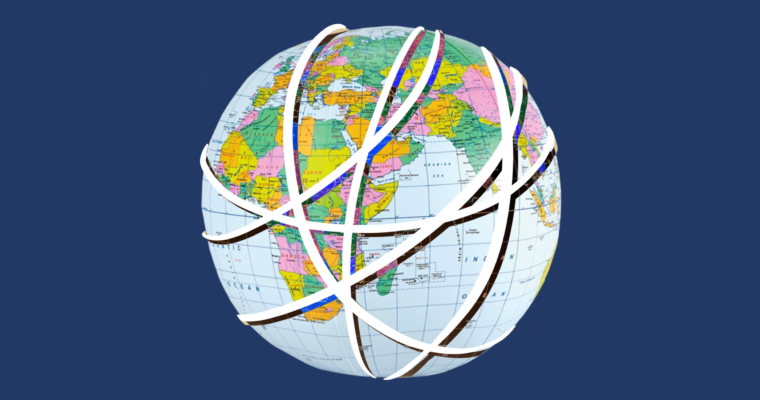Industrialization was long considered the path to economic development. But as the global south stands to lose its competitive edge to increasing levels of automation in the global north, this trajectory is no longer obvious. Some developing countries have leveraged the digital age to offer low-cost services, rather than manufacturing. Is that a promising strategy?
By Jack Gao | For the vast majority of countries, growing rich meant learning to make things. In the 19th century, Britain produced half of the world’s cotton cloth; manufacturing sector in America was a quarter of its gross domestic product 50 years ago; Japan’s post-war economic miracle ushered in a generation of powerful keiretsu from Mitsui to Mitsubishi; China, currently the largest manufacturer in the world, perfected the tactic by moving hundreds of millions from farmland into factories. In short, development equaled industrialization.
And for good reasons. The manufacturing sector boasts unique properties—scale, trade-ability, existing technology, and employment intensity—that makes it stand out as the coveted national development strategy for low-income countries. India, Vietnam and much of Africa have all tried to emulate the rise of Chinese industrialization and hop on the escalator to achieve economic development, with varying degrees of success.
When the latest digital revolution brought in automation and industrial robots, many feared that the path to prosperity for developing countries might be short-circuited. Machines that produce goods more cheaply and efficiently in rich economies might make trading with poorer countries unnecessary. McKinsey Global Institute sees the forces of automation particularly impacting lower-income countries; Harvard economist Dani Rodrik uses the term “premature deindustrialization” to describe ever earlier and lower peaks of industrial output and employment shares already observed in many countries. As automation erodes the cost-advantage of developing economies, the prospect to grow one’s way out of poverty through industrialization has become bleak.
Some scholars, however, don’t think things will turn out so badly for the developing world. In a new paper, Richard Baldwin from the Graduate Institute in Geneva and Rikard Forslid from Stockholm University argue that trade in services presents ample opportunities for poor countries to catch up even if manufacturing were to become jobless. The dramatic fall in the trade costs for services brought forth by the latest technologies, coupled with vast wage differences between rich and poor countries, will make a wide range of previously localized services tradable across national borders and could turn out to work to the advantage of low-income countries. Think call centers, data analysis, and medical billing.
The authors back their sanguine prediction by the experiences of two large developing counties—India and the Philippines. After modest success in the attempt to modernize its manufacturing industry, India embarked on the service route partly through the liberalization of investment restrictions in the 1980s. Research and development departments of multinational companies, call centers, as well as other business administration services flooded into India to take advantage of the low-cost but skilled labor force. Kaushik Basu’s explanation that India’s overproduction of engineers throughout the decades matched Silicon Valley’s demand for tech workers is an illustration of how services were exchanged between India and the US. The Philippines has developed a similarly booming service sector since 2000, becoming a preferred destination for IT-based business process outsourcing from global banks and tech companies. Experience from both countries highlighted the rise of trade in services made possible by computerization and the internet, while an educated workforce with specialized skills, including English-language communication, captured the opportunity where services became geographically unbundled.
The prediction made by the authors, if true, is certainly good news for low-income countries facing the dual challenges of a digital revolution and a reduced appetite for global trade in goods. Technological advancement is only poised to continue and render more services potentially tradable, given trends in “telemigration” (online service workers employed by foreign-based companies) and “telecommuting” (the use of collaborative online platforms for business meetings).
However, there’re reasons to be skeptical. The current share of global trade in services is still far smaller than that of trade in goods, and developing countries as a whole remain net importers of services from developed countries. Perhaps more importantly, while countries such as the Philippines, India, and Bangladesh have participated in global trade in services, it is not clear that other developing economies are as well-positioned to partake in this trend, especially given the woefully low level of human capital widely observed today.
Economic development has always been a challenging task and the challenge evolves as circumstances change. Countries will do well by focusing on improving binding constraints at home while keeping an open eye on new opportunities presented by a changing global economy, but many questions remain.
Jack Gao is a Program Economist at the Institute for New Economic Thinking. He is interested in international economics and finance, energy policy, economic development, and the Chinese economy. He previously worked in financial product and data departments in Bloomberg Singapore, and reported on Asian financial markets in Bloomberg News from Shanghai. Jack holds a MPA in International Development from Harvard Kennedy School, and a B.S. in Economics from Singapore Management University. He has published articles on China Policy Review and Harvard Kennedy School Review.

Foreign trade to the exclusion of food and energy self sufficiency at home is not the way to gain monetary sovereignty, a mandatory pre-requisite for realising sustainable economic well-being and prosperity at home.